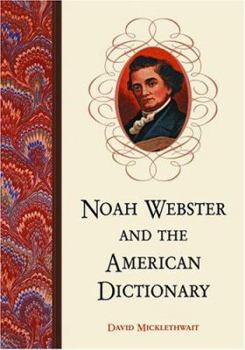Noah Webster and the American Dictionary
Select Format
Select Condition 
Book Overview
Noah Webster was described by the publisher of a competing dictionary as "a vain ... plodding Yankee, who aspired to be a second Johnson"--a criticism that rings mostly true. He was certainly vain and, born in Connecticut, undeniably a Yankee. Moreover, though he referred to Johnson's Dictionary of the English Language as a "barren desart of philology," the American lexicographer relied heavily on the book during the creation of his own American Dictionary, going so far as to filch whole sections. And few would seem more "plodding" than Webster, who was positively obsessed with collecting and preserving bits of information. He kept records of the weather, carefully logged the number of houses in every new town he passed through, filed away every scrap of his writing and everything written about him, and filled the margins of his books with references, dates and corrections.
The proud Yankee's sensibilities, however, also made him a fine lexicographer. Generally credited with distinguishing American spelling and usage from British, Webster shunned prescriptive mores and was doggedly loyal to his own language habits, as well as to those of the average American speaker.
The book covers Webster's major publications and the influences and methods that shaped them; recounts his life as schoolteacher, copyright law champion, and itinerant lecturer; and examines the Webster legacy. An appendix containing title page reproductions from Webster's books, as well as some from his predecessors and competitors, is also included.
Related Subjects
Biographical Biographies Biographies & History Biography & History Language Arts Reference




